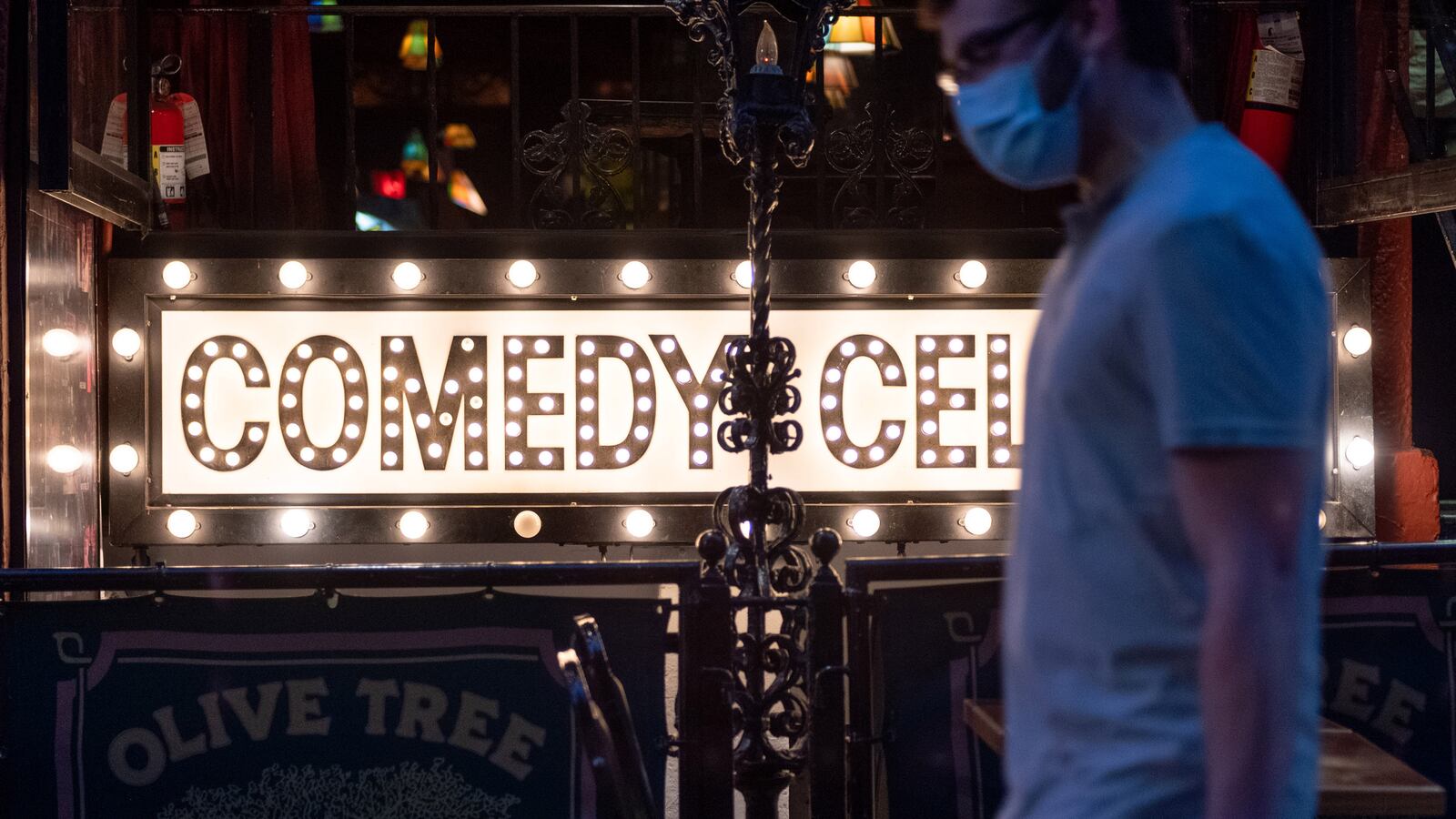Easy-going laughs turned to nervous chuckles at Manhattan’s Comedy Cellar on Wednesday night, as the basement suddenly began to flood, cutting short surprise guest Al Franken’s set. But instead of hurriedly ushering guests out so they could escape New York City’s flash floods, the venue made people wait in rising waters to close out their tabs.
Video from the night shows people clambering onto chairs to avoid the flooding, with wait staff stomping through ankle-high waters trying to collect payment. But the Comedy Cellar’s Village Underground location was apparently aware the space would possibly flood, as staffers put out a line pump during the middle of the show to divert any water that might rush in, an attendee told The Daily Beast.
The Comedy Cellar did not respond to request for comment.
The flooding began while Franken was on stage, an apparent warm-up for the former Minnesota senator’s upcoming nationwide comedy tour. The 70-year-old has been steadily mounting a comeback since last year, following his Dec. 2017 resignation after multiple women accused him of sexual misconduct. Franken had to be interrupted by a staffer to stop his set, two people told The Daily Beast.
Singer-songwriter Natalie Hart said she didn’t even realize the venue had started flooding until Franken’s performance was cut short. “We were sitting in one of the booths that was a little bit above the floor, so we didn’t notice, and nobody said anything for a while,” she explained. “Once it got to be pretty noticeable, the house manager flashed the light at [Franken]. He’s like, ‘Oh, do I need to cut it short?’ And he was like, ‘Yes, it’s flooding.’ And [Franken] was like, ‘Oh, well do I really? Is it that serious?’ And he was like, ‘No, absolutely. Everybody needs to go.’ We all looked down and everything happened very fast from there.”
Health economist Ali Jalali said a staffer called out to the room that everyone needed to close their tabs before trying to leave. “At first, it wasn’t that bad,” Jalali said, adding that people initially seemed OK with closing out their tabs, but as the waters began to creep higher, some grew agitated. “People were really trying to [leave], like, ‘Where’s my card?’” he said. “Later, when it got really bad, I think there was a server who said, ‘All right, go, get out.’ But a lot of folks had already paid by then.”
Hart was wearing three-inch heels and her ankles were nearly submerged by the time she was able to finish paying her tab, around five to 10 minutes later. Jalali said his shoes were similarly soaked, and he waited up to 15 minutes downstairs.
While Hart said she was happy to close out her tab to make sure the wait staff got paid, in hindsight she realizes the situation could have easily turned dangerous, seeing how badly other parts of the city were hit. Several people have died from Hurricane Ida, including a 2-year-old child who drowned in a basement in Queens. Other social media videos from New York City have shown apartments ruined, cars submerged on highways, and water gushing into subway stations.
Both Hart and Jalali think Comedy Cellar should develop a future plan in case something like this happens again, as climate change has led to the realization that New York City’s infrastructure needs a complete overhaul.
Hart suggested that because the venue has an upstairs space, people should have been allowed to wait there to close out their tabs, instead of being held underground.
“There should be some kind of procedure that when the thing starts flooding, they just take the financial loss and write it off, or maybe have some type of honor system,” Jalali added. “I’m not surprised they don’t [have a procedure in place] because it’s probably a rare event, but I think it will be less rare going forward.”






